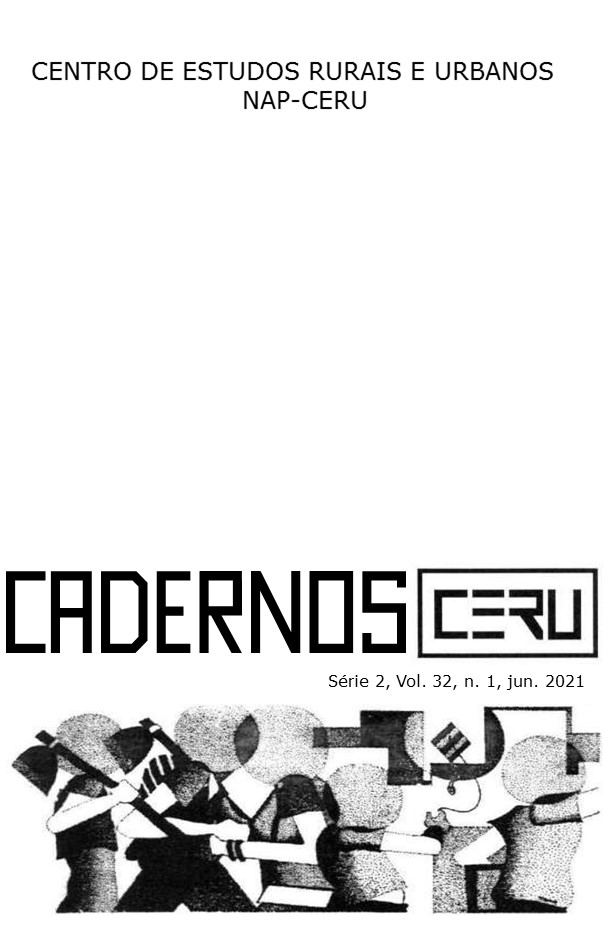Uma descrição fenomenológica da casa-afetiva no domínio da memória
DOI:
https://doi.org/10.11606/issn.2595-2536.v32i1p185-195Palavras-chave:
Casa-afetiva, Fenomenologia, Psicologia social, Arte da memória, Tempo autobiográficoResumo
Apresentamos um ensaio fenomenológico da casa-afetiva procurando descrevê-la no âmbito das vivências autobiográficas que conferem formas elevadas de compreensão da vida no domínio poético da imagem, da lembrança e da linguagem. Buscamos representar uma corrente da fenomenologia cuja convergência reflete uma hermenêutica em que as regiões de pertencimento e enraizamento participam de certa ontologia fundamental da temporalidade da existência humana. Parece-nos uma matéria ao alcance de uma psicologia social que busca no exame da microhistória a estrutura poética da memória que desvela o sentimento de um habitar. Vamos em busca desse tempo autobiográfico originário do Ser no qual encontramos nossas relações de pertencimento.
Downloads
Referências
BACHELARD, Gaston. O direito de sonhar. São Paulo: Bertrand Brasil, 1994.
BACHELARD, Gaston. A poética do Espaço. São Paulo: Martins Fontes, 2008.
BENJAMIN, Walter. Rua de mão única. São Paulo: Brasiliense, 1987.
BERGSON, Henri. Memória e Vida. São Paulo: Martins Fontes, 2006.
BOSI, Ecléa. O tempo vivo da memória: ensaios de psicologia social. São Paulo: Ateliê, 2003. DILTHEY, Wilhelm. “Draft Critique of Historical Reason”. The formation of the historical world in the human sciences. Chicago: University of Chicago Press, 1978.
DUFRENNE, Mikel. Phénoménologie de l'expérience esthétique. Paris: Presses Universitaires de France, 1967.
HEIDEGGER, Martin. “A origem da obra de arte”. In: Caminhos de Floresta. Tradução Irene Borges Duartee Filipa Pedroso. Centro de Filosofia da Universidade de Lisboa: Fundação Calouste Gulbenkian, 1998.
HARTOG, François. “Régimes d ́historicité: Présentisme et expériences du temps”. Référence électronique. Paris, Editions du Seuil, 2003. Disponível em: https://journals.openedition.org/osp/752
HUTTON, Patrick.“The art of memory: from rhetoric to psychoanalysis”. In: Journal of History of ideas, Inc., 1987. Disponível em: http://marcuse.faculty.history.ucsb.edu/classes/201/articles/87HuttonArtMemoryReconceivedJnlHistIdeas.pdf
JAMES, William. Principles of psychology. Chicago: Encyclopedia Britannica, 1952.
MCGUIRE, J. E. “Newton on Place, Time and God: An Unpublished Source”. The British Journal for the History of Science, XI (38): 114-129, 1978.
PROUST, Marcel.“Tempo Recuperado”. Vol. 7. In: A busca do tempo perdido. Trad. Fernando Py. Nova Fronteira: Rio de Janeiro, 2016.
RICOUER, Paul. (2003). “Memória, História, Esquecimento”, 2003. Disponível em: https://www.uc.pt/fluc/uidief/textos_ricoeur/memoria_historia. Acesso em: 23 abr. 2021.
SILVA, Franklin Leopoldo e. “Bergson e Jankélévitch”. Estudos Avançados 10 (28): 333-345, 1996.
YATES, Frances. The Art of Memory. Vintage Digital, 2011.
Downloads
Publicado
Edição
Seção
Licença

Este trabalho está licenciado sob uma licença Creative Commons Attribution-NonCommercial-ShareAlike 4.0 International License.


